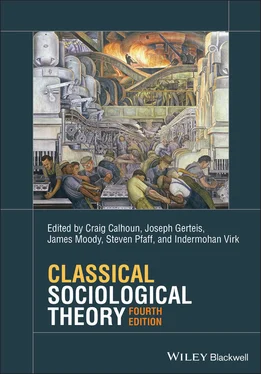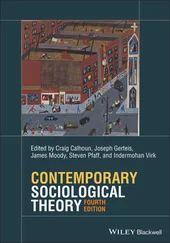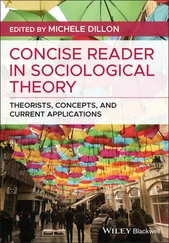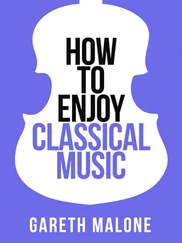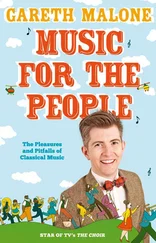Classical Sociological Theory
Здесь есть возможность читать онлайн «Classical Sociological Theory» — ознакомительный отрывок электронной книги совершенно бесплатно, а после прочтения отрывка купить полную версию. В некоторых случаях можно слушать аудио, скачать через торрент в формате fb2 и присутствует краткое содержание. Жанр: unrecognised, на английском языке. Описание произведения, (предисловие) а так же отзывы посетителей доступны на портале библиотеки ЛибКат.
- Название:Classical Sociological Theory
- Автор:
- Жанр:
- Год:неизвестен
- ISBN:нет данных
- Рейтинг книги:3 / 5. Голосов: 1
-
Избранное:Добавить в избранное
- Отзывы:
-
Ваша оценка:
- 60
- 1
- 2
- 3
- 4
- 5
Classical Sociological Theory: краткое содержание, описание и аннотация
Предлагаем к чтению аннотацию, описание, краткое содержание или предисловие (зависит от того, что написал сам автор книги «Classical Sociological Theory»). Если вы не нашли необходимую информацию о книге — напишите в комментариях, мы постараемся отыскать её.
Classical Sociological Theory — читать онлайн ознакомительный отрывок
Ниже представлен текст книги, разбитый по страницам. Система сохранения места последней прочитанной страницы, позволяет с удобством читать онлайн бесплатно книгу «Classical Sociological Theory», без необходимости каждый раз заново искать на чём Вы остановились. Поставьте закладку, и сможете в любой момент перейти на страницу, на которой закончили чтение.
Интервал:
Закладка:
Modernity and the Great Transformation
Science was one factor that made modern society new and different. This meant first of all different from Europe’s immediately preceding history, the ‘middle ages’ understood to have come between the fall of the Western Roman Empire (roughly during the 5th century) and the beginnings of modernity in the Renaissance (mostly 15th and 16th centuries). It meant different secondarily from Classical Greece, Rome, Egypt, and other ancient societies that had flourished around the Mediterranean Sea. And it meant different, third, from the other great civilizations of which Europeans became aware through explorations (and eventually trade and religious missions) launched during the Renaissance. Looking at these three contrasts helped theorists clarify not just what was modern, but what was social. We can see them at work in the development of core themes for classical sociological theory, each of which also reflected how sociological theory was differentiated from work in other emerging social science disciplines.
States.Nested hierarchies of political power and religious authority were central to the Middle Ages. This meant not just that some were ranked higher than others, but that structures of personal authority shaped who fit into recognized groups. Kings did not rule peasants directly. They ruled noble lords who ruled lesser lords, knights, and squires. Their authority only reached the peasants through layers, and at each level, the authority of lords only extended through specific territories.
Medieval kings often claimed to rule by divine right. Legitimate inheritance from the previous king was crucial. Modernity saw a demand to rethink legitimacy, with more emphasis on how well governments served the people in their societies. Politics was reorganized, with classical theorists engaged in trying to shape the outcomes as well as understand the process. Three kinds of political change were crucial:
First, the personal power of individual rulers was increasingly augmented (and eventually replaced) by the rise of state administrative capacity. This took place in an era of repeated wars fought partly over religion and partly to try to consolidate territorial power. Waging war was not just a matter of heroism in battle or having more soldiers than an enemy. It depended on the capacity to manufacture weapons, move troops (and feed and pay them), and increasingly to build ships – which in turn meant harvesting trees in inland forests and getting them to coastal shipyards. Military administration helped advance civilian administration as states took over issuing money, building roads, and eventually old age pensions, health care, and education.
Projects of state administration led to the development of bureaucracy – a term coined by the classical sociological theorist Max Weber (excerpted here) who pioneered its study. This wasn’t all new. Bureaucracy was pioneered in the Chinese Empire, but it grew dramatically in modern nation-states. This meant rationalizing government, using civil servants forbidden to have other jobs (and thus conflicts of interest) and hiring and promoting them on the basis of their skills (rather than their families or political connections). The expanding role of government also reflected social demands, as businesses demanded better money and better roads, and workers demanded pensions, health care, and education. Expecting more of government produced calls to make government accountable.
Second, political power was increasingly organized in terms of nation-states. Wars of religion both reflected and advanced the change. They were projects of trying to produce uniformity among all the inhabitants of a country – all Catholics, say, or all Protestants. Such projects didn’t stop with religion. The idea of nation transformed how modern people thought of culture – not just as elite taste but as a whole way of life. The idea of nation gained material substance with the standardization of national languages in place of local dialects, public education, and infrastructures for shared communication.
Medieval kings could give away a whole region in a marriage or inherit a foreign country where they didn’t even speak the language. Frontiers were vague. Modern nation-states emphasized more or less unified populations with clear territories and borders. Domestic integration contrasted with external conflict and, as in the case of colonies, domination.
National integration was accompanied by a new sense that society mattered. For kings and emperors, ordinary people could be a problem or a resource, but they were seldom a basic value. Indeed, kings and emperors often ruled over collections of societies – the different peoples who lived on the territories they conquered, each with a distinct way of life. Ordinary people didn’t really count in politics. Kings thought of them as potential soldiers, but not citizens. At most, there were efforts to make sure their minimal subsistence needs were met – partly out of moral obligation, partly to avoid crime or rebellion.
Third, during the modern era demands grew for wider political participation. These came first of all from elites. Both landowners and merchants with new wealth resisted being dominated by kings. But at the same time there was pressure ‘from below’. This came in part because ordinary people were organizing themselves in new ways. Small businesses also grew more numerous (and sometimes bigger). Farmers more often owned the land they worked. Craft societies expanded, including more workers. Education became more widespread. So did practical experience in self-government in a host of different organizations from local churches and schools to burial and charity societies.
The idea of ‘consent of the governed’ had powerful appeal to people who thought of themselves as independent citizens capable of making choices about the societies in which they lived. Social contract theory drew on this sensibility, and also on Biblical understandings that God created human beings as free individuals. Thomas Hobbes (excerpted here) suggested that originally free people were likely to discover that by themselves they were vulnerable to theft or even murder. Life in a state of nature might be free, but it would turn out to be “nasty, brutish, and short.” People might therefore give up some freedom in exchange for security. His theory pioneered a recurrent effort to understand society in terms of the choices of self-interested individuals. But it is no accident that Hobbes focused on property. His approach to individuals stressed their capacity to possess more than their capacity to express creativity. 12
By contrast, Jean-Jacques Rousseau (also excerpted here) held that private property was the enemy of freedom as well as equality. He used social contract theory to argue that those who had given consent to government could withdraw it. Like many of those who shaped early modern society, Rousseau admired the Roman Republic as an example of virtuous self-rule, lost with the transition to empire. They built on Renaissance experiments with self-governing city-states, constituted a radical wing to the 17th Century English Revolution, and were more successful in the American and then the French Revolutions of the 18th Century.
Alexis de Tocqueville and others in this tradition sought social foundations for democracy in ‘civil society’. This meant society that was a free product of relations among private persons. Contract was a model for those relations, but not the only one. Friendship, religious community, and the self-governance of medieval guilds and cities also offered models. Tocqueville emphasized the importance of autonomous local communities and communications media able to reach larger scale publics. He helped classical sociological theory recognize how much of human life was organized at a level between the interior privacy of intimate family life (or indeed, the inner personality of the individual) and the exterior direction of the state. Society was the crucial middle ground in which relationships could not be explained entirely by psychology, politics or economics. 13Knitting together national societies strengthened democracy’s social foundations and efforts like social security to support the welfare of all citizens. Sociologists have both celebrated success (Durkheim and Parsons) and analyzed shortcomings (Durkheim again, along with Polanyi, Horkheimer and Adorno, and Mannheim).
Читать дальшеИнтервал:
Закладка:
Похожие книги на «Classical Sociological Theory»
Представляем Вашему вниманию похожие книги на «Classical Sociological Theory» списком для выбора. Мы отобрали схожую по названию и смыслу литературу в надежде предоставить читателям больше вариантов отыскать новые, интересные, ещё непрочитанные произведения.
Обсуждение, отзывы о книге «Classical Sociological Theory» и просто собственные мнения читателей. Оставьте ваши комментарии, напишите, что Вы думаете о произведении, его смысле или главных героях. Укажите что конкретно понравилось, а что нет, и почему Вы так считаете.
